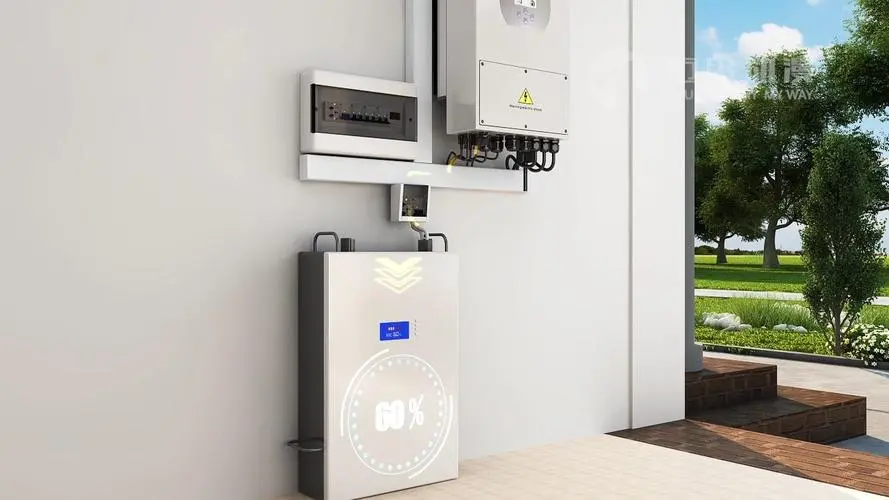 |
Welcome To Evlithium Best Store For Lithium Iron Phosphate (LiFePO4) Battery |
 |

When considering an upgrade to your energy system, hybrid inverters are a key component to explore. These inverters are not just traditional power converters but are often referred to as intelligent hybrid inverters due to their advanced functionality. They seamlessly integrate with battery storage systems and can even interact with smart grids, optimizing energy use in real-time. Before deciding to install one in your home, it's important to understand the capabilities, cost, installation process, and reliability of hybrid inverters.
Hybrid inverters are intelligent devices that offer a versatile range of functions to manage your home’s energy efficiently. They can switch AC loads automatically between two power sources, minimizing the risk of voltage fluctuations and protecting your home’s electrical equipment. Their primary roles include:
Power Generation and Storage: Hybrid inverters generate and store reactive power, which is essential for maintaining the stability of your home’s electricity supply. Unlike traditional inverters, they can act as both power generators and energy storage units.
Smart Energy Management: These inverters operate both on-grid (connected to the main electricity network) and off-grid (independent of the grid). Their smart-grid capabilities allow them to store energy based on real-time usage patterns, enhancing efficiency. This flexibility means that users can control how much energy they consume, store, or draw from alternative sources like solar panels or backup batteries.
Backup Power Support: In the event of a power outage, hybrid inverters can seamlessly switch to battery storage or other backup power sources, ensuring uninterrupted power for essential household devices.
Investing in a hybrid inverter is a strategic decision for anyone looking to modernize their energy system and reduce energy costs in the long term. However, it's important to be aware that hybrid inverters tend to be more expensive than conventional inverters. Prices can range from $1,500 to $3,000 or even more, depending on the model, features, and capacity.
Despite the higher upfront cost, hybrid inverters often prove to be cost-effective over time due to their ability to integrate seamlessly with energy storage systems like lithium-ion batteries. This capability enables homeowners to store excess energy for later use, reducing reliance on grid power and lowering electricity bills. Additionally, many hybrid inverters can be wired to electric vehicle chargers, providing a sustainable solution for EV charging at home.
The installation of a hybrid inverter can be more complex than that of a standard grid-tied inverter due to its advanced capabilities. It often requires additional wiring to accommodate the multiple inputs and outputs necessary for managing solar panels, battery storage, and other energy sources. For optimal performance, it's recommended to have a professional installer handle the setup, ensuring that the inverter is properly integrated with your home’s electrical system.
A well-installed hybrid inverter can significantly enhance your return on investment (ROI) by maximizing the efficiency of your solar energy system. This device not only facilitates seamless energy transition during power outages but also provides the flexibility to upgrade with battery storage or additional solar panels as your energy needs grow.
The reliability of a hybrid inverter is crucial to its performance and the overall effectiveness of your energy system. To ensure you choose a durable model, look for those that come with third-party quality assurance certifications, such as those from Clean Energy Associates (CEA). A certified hybrid inverter has undergone rigorous testing to ensure its components are built to withstand extreme weather conditions and maintain consistent performance over time.
Models like the Deye and Sun-5G series are renowned for their robust designs, which include advanced thermal management systems to handle temperature fluctuations. This durability translates to a longer lifespan, making them a reliable option for both residential and commercial use.
One of the standout features of hybrid inverters is their ability to operate in off-grid mode. This means they can generate power independently or in conjunction with a battery, providing a versatile power source even in areas without a stable grid connection. Hybrid inverters in off-grid mode are ideal for backup power applications, allowing them to support high-demand appliances like pumps, refrigeration units, and even electric vehicle charging stations.
These systems can automatically switch between drawing power from the battery or the grid, depending on the energy availability and usage patterns, making them highly efficient and reliable for continuous power supply.
Opting for a hybrid inverter is a strategic choice for homeowners looking to optimize their energy use and reduce monthly utility bills. With their ability to store and manage energy more effectively than traditional systems, hybrid inverters offer significant long-term savings. Their intelligent features, combined with the potential for future scalability with battery storage or electric vehicle integration, make them a forward-looking investment in sustainable energy.
In summary, hybrid inverters represent a smart, flexible, and efficient solution for modern energy management, whether you're aiming to go off-grid or simply reduce your dependency on traditional energy sources.
Edit by paco
Last Update:2024-10-08 10:31:32
All Rights reserved © 2026 Evlithium Limited